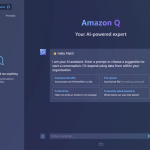Introduction
Artificial intelligence (AI) is the ability of machines to perform tasks that normally require human intelligence, such as reasoning, learning, decision making, and creativity. AI has many potential benefits for humanity, such as improving health care, education, security, and productivity. However, AI also poses significant risks and challenges, such as ethical, social, legal, and security issues. Some experts warn that AI can be more dangerous than nuclear weapons, and that we need to ensure that AI is aligned with human values and goals.
AI and Ethics
One of the main challenges of AI is how to ensure that it is ethical, fair, and transparent. AI systems can have biases, errors, and unintended consequences that can harm human dignity, rights, and interests. For example, AI can be used to discriminate against certain groups of people, manipulate human behavior, invade privacy, and spread misinformation. Moreover, AI can be difficult to explain, understand, and control, especially when it involves complex and autonomous systems that can learn and evolve over time. Therefore, we need to establish ethical principles and guidelines for the development and use of AI, and to ensure that AI is accountable, explainable, and trustworthy.
AI and Society
Another challenge of AI is how to ensure that it is beneficial and compatible with human society and culture. AI can have profound impacts on various aspects of human life, such as work, education, entertainment, and communication. AI can create new opportunities and challenges for human development, creativity, and well-being. However, AI can also disrupt and transform existing social structures, norms, and values, and create new forms of inequality, conflict, and violence. For example, AI can replace human workers, create digital divides, undermine human autonomy and agency, and increase cyberattacks and warfare. Therefore, we need to ensure that AI is inclusive, participatory, and respectful of human diversity and dignity.
AI and Security
A third challenge of AI is how to ensure that it is safe and secure from malicious attacks and misuse. AI can be a powerful tool for enhancing human security and defense, such as detecting and preventing threats, responding to emergencies, and saving lives. However, AI can also be a source of new and unprecedented threats and vulnerabilities, such as hacking, sabotage, espionage, and terrorism. For example, AI can be used to create fake or altered images, videos, and audio, to deceive and manipulate people, to steal or leak sensitive information, and to launch cyber or physical attacks. Therefore, we need to ensure that AI is robust, reliable, and resilient, and that it follows international laws and norms.
Conclusion
AI is a double-edged sword that can bring both benefits and risks to humanity. AI can be more dangerous than nuclear weapons, if it is not developed and used in a responsible and ethical manner. Therefore, we need to ensure that AI is aligned with human values and goals, and that it respects human rights, interests, and dignity. We also need to foster a culture of cooperation and dialogue among various stakeholders, such as researchers, developers, policymakers, and users, to ensure that AI is beneficial and compatible with human society and culture. Finally, we need to establish and enforce standards and regulations to ensure that AI is safe and secure from malicious attacks and misuse. By doing so, we can harness the potential of AI for the common good of humanity and the planet.



